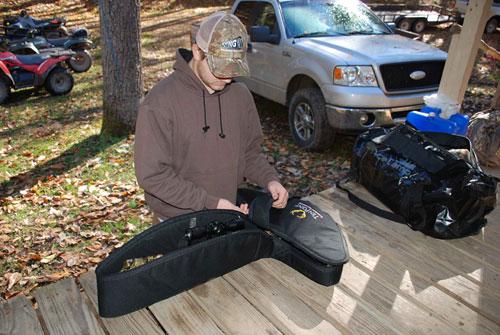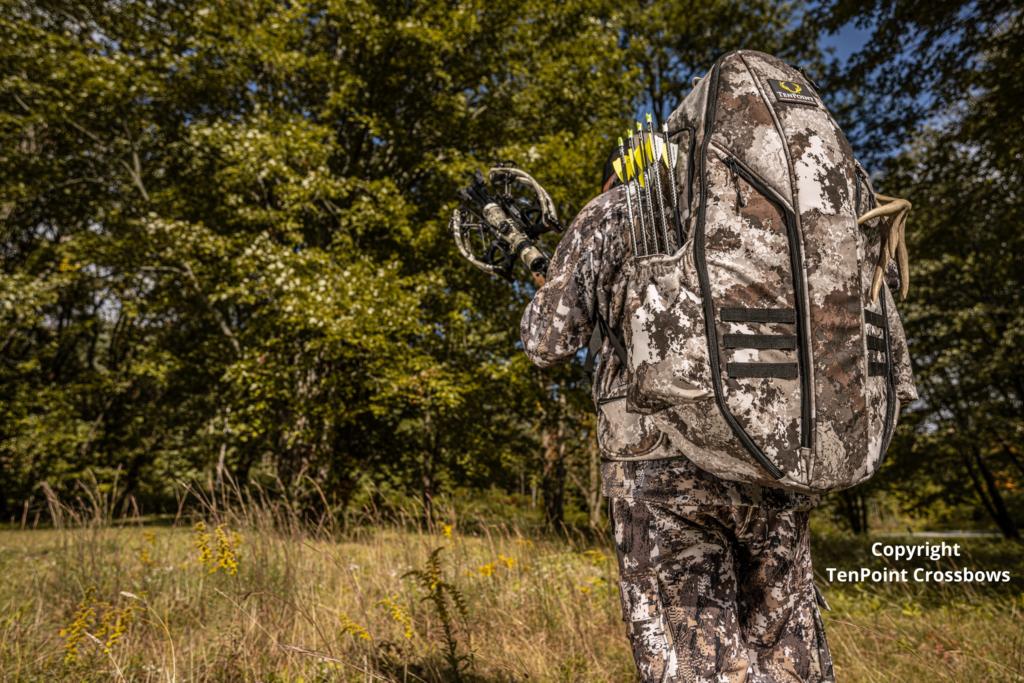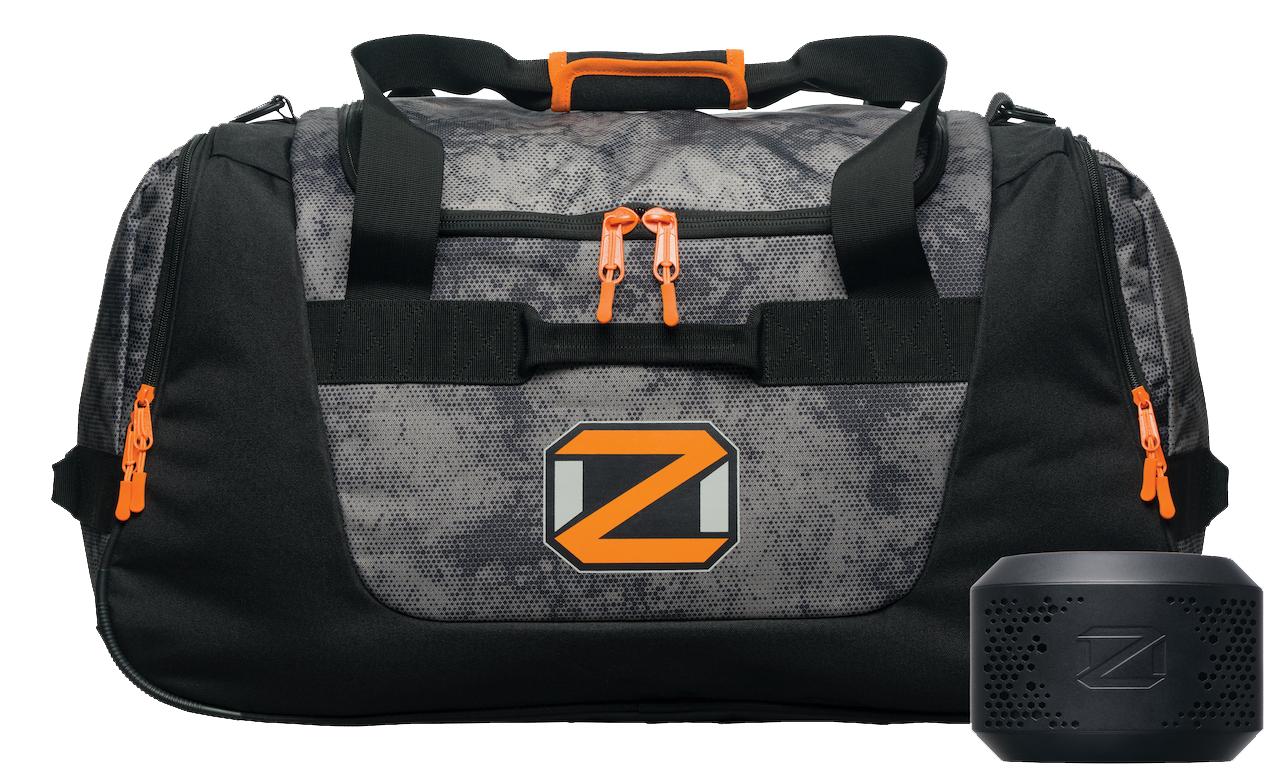We put a lot of thought into the equipment we take to the hunting fields, but the one thing that keeps our hard-fought-for gear safe and functioning rarely gets such attentionxe2x80x94crossbow cases. Granted, a case to store your crossbow isn’t exactly glamorous or exciting, but it is necessary for protecting that expensive hardware, and it is required by law in many states.

To shine a bit of light on this, lets take a closer look at crossbow cases and what you need to consider when buying one, whether it’s for transporting a crossbow behind the house on your ATV, or for heading cross-country on a major hunting adventure.
Know Your State Laws
First, every crossbow hunter needs to be aware of the laws in their state or district regarding the transportation of crossbows on or in a motorized vehicle. Most states demand that crossbows be cased anytime they are transported in a vehicle on public roads. Some states go even further in their regulations, stipulating that crossbows must also be in an uncocked condition.
Which Crossbow Cocking Mechanism Is Right for Me?
Complicating things is the growing use of ATVs and, in particular, UTVs or side-by-sides. In rural areas laced with dirt roads, it’s common for hunters to use these roads for quick access to their hunting areas. They may think nothing of slinging an uncased crossbow over their shoulder and ‘wheeling to their stand for an evening hunt. If you’re on private property, no problem, but if such roads are public right-of-ways, then applicable crossbow transportation laws absolutely apply.

The lesson here is to know before you go. Traveling even a short distance on a backcountry dirt road means that your crossbow probably needs to be in a case. If that is the situation, then you’ll want a crossbow case that can be conveniently and safely transported in a full-size vehicle or on an ATV or UTV, and you’ll need appropriate tie-down or lock-down hardware to accommodate the smaller rigs.
Types of Crossbow Cases
As with firearm cases, crossbow cases are available in soft- or hard-shell varieties. The type that you choose depends on your needs and the level of protection that you seek.
For keeping your crossbow safe from anything short of a pickup truck rolling over it, a good hard case is definitely the way to go. These are typically lined with a soft fabric and include tie-down straps to keep the crossbow from jostling around inside and being damaged.

Although crossbows themselves can take some bumps and bruises and keep on swinging, optics are a bit more sensitive. A really hard impact can throw the zero off, or worse yet, damage the scope and the mounting hardware. A hard case will provide the maximum possible protection for your crossbow and it is the optimal choice if your transportation environment is aggressive. For example, if you’re transporting your crossbow cinched down in the bed of a UTV along with other gear or maybe a deer that you’re hauling back home, a hard case is the way to go. Good hard-shell crossbow cases, like good gun cases, are an investment, but it is a small price to pay for the added assurance of keeping your crossbow investment in prime condition.
How to Get the Most Power Out of Your Crossbow
A less expensive alternative is a soft crossbow case. These typically feature a nylon fabric shell with a padded interior and zippered access. As to be expected, a soft case is not going to provide the level of impact protection that a hard case will offer, but it will dull sharp blows and offer protection for the finish and cables.

Typically, a soft case is all that you need when transporting your crossbow in an enclosed vehicle xe2x80x94 so long as you keep heavy gear from falling on it. It are also a good solution for transporting your crossbow on an ATV with minimal cargo rack space if you are riding on a public right-of-way, because they meet (in many states) the legal requirement. The key is to properly secure it to your cargo rack so that it doesn’t slip off or bounce around on rough roads.
If you do choose a quality soft case, be sure to get one that will accommodate your quiver and arrows. This usually involves an exterior storage compartment that will hold a quiver, arrows and small accessories.
No-Case Transport
Sometimes, transporting your crossbow in a case on an ATV isn’t possible or convenient. Here, we’re talking about traveling exclusively on private property. For this, a standard ATV gun rack will usually work very well. Simply install the rack so that it can securely lock down across your crossbow stock and barrel.

If you do use a gun rack to carry an open crossbow, a word of caution: do so only when riding on easy, smooth trails and be extremely careful. Accidents can happen (unchallenging flat dirt trails are no exception), and the last thing that you want to do is get twisted up while a crossbow is on your rack.
15 Tips for Safe Crossbow Use
And one more thing xe2x80x94 ALWAYS remove your broadheads from your arrows when you carry your crossbow uncased on an ATV. Take them off and place them in a small box so that the blades won’t become dulled, and then put them back on after you park. It takes less than a minute to do, and it can help prevent a fatal injury if you have an accident.
Air Travel
If you’re planning to take a cross-country hunting trip by plane, then a hard crossbow case is a must. Look for an airline-compatible crossbow case that will also accept TSA-compliant locks.

Crossbows, arrows and broadheads can only be transported as checked baggage, and almost always require TSA inspection during the check-in process. An airline-grade hard case will protect your gear, and a case that accepts TSA-compliant locks means inspectors can access your case without cutting the locks or damaging your case if you are not present to open it.
Uncock Before Transport
Although some cases on the market can accept a cocked crossbow, don’t transport a cocked crossbow even if it is illegal in your state to do so. If you are in an accident while transporting it in an enclosed vehicle or an ATV/UTV, or merely driving on a rough road or trail, there is the possibility that an impact event could release the trigger on some crossbow models. If that happened, you just dry-fired your crossbow and possibly damaged it. It’s not worth the risk.

The smart thing to do is always keep an unloading bolt with you. We favor the Omni-CUB crossbow unloading bolts. Their two-piece design lets them stow easily in your pack or on your crossbow sling so you can discharge a crossbow before casing it and heading home.
Yes, casing your crossbow for transportation can sometimes be inconvenient, but it’s the safe thing to do for both you and your equipment. It’s also the law in most states. Our recommendation: Get a quality crossbow case that best fits your needs and use it whenever possible xe2x80x94 and always when legally mandated. It’s a dose of preventative medicine that will pay big dividends in the long run.
xe2x80x94 PAID PARTNER CONTENT. This content is brought to you by a D&DH advertising sponsor.


